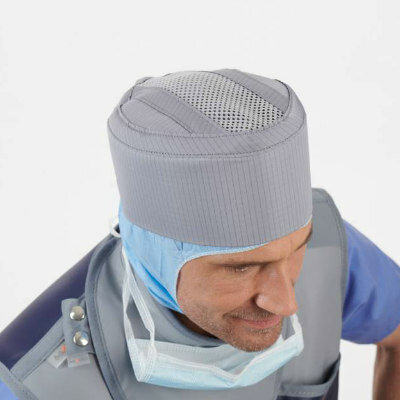Improved Radiation Dose Management Solution
|
By MedImaging International staff writers Posted on 21 Oct 2015 |

Image: Nuance PowerScribe 360 User Importing Patient Radiology Dosimetry data from the Philips DoseWise Portal (Photo courtesy of Royal Philips Healthcare).
A new collaboration between a major medical imaging equipment and solutions manufacturer, and a company offering an industry-leading radiology reporting solution, will provide improved tracking and reporting of radiation exposure resulting from an imaging scan.
The agreement will address increasing concern from patients, clinicians, and healthcare providers about radiation exposure from imaging scans, and increasing pressure to meet new US State, and national radiation dose standards.
The collaboration will help users of the Nuance Communications (Burlington, MA, USA) PowerScribe 360 medical reporting platform import patient radiology dosimetry data from the Royal Philips Healthcare (Amsterdam, the Netherlands) DoseWise Portal.
The collaboration will facilitate recording of radiation dose data from X-Ray, Computed Tomography (CT) and Positron Emission Tomography (PET) scanners during the normal radiology workflow, in the electronic medical record of patients, preventing transcription errors. The data is then available for use in radiology reports, and for viewing in Radiology Information System (RIS) and other health record systems.
Dominic Siewko, director of clinical dose management, Philips Healthcare, said, "Healthcare providers and radiologists today are under increasing pressure to meet new radiation dose standards, track ongoing exposure and ensure the safety of patients and staff, but many don't know where to start. By combining the Philips DoseWise Portal with Nuance PowerScribe, the industry's most widely used real-time radiology reporting solution; we're aiming to put the best radiation dose management tools into the hands of thousands of clinicians. By integrating advanced technology with improved processes, we're helping radiology transform its care practice."
Related Links:
Royal Philips Healthcare
Nuance Communications
The agreement will address increasing concern from patients, clinicians, and healthcare providers about radiation exposure from imaging scans, and increasing pressure to meet new US State, and national radiation dose standards.
The collaboration will help users of the Nuance Communications (Burlington, MA, USA) PowerScribe 360 medical reporting platform import patient radiology dosimetry data from the Royal Philips Healthcare (Amsterdam, the Netherlands) DoseWise Portal.
The collaboration will facilitate recording of radiation dose data from X-Ray, Computed Tomography (CT) and Positron Emission Tomography (PET) scanners during the normal radiology workflow, in the electronic medical record of patients, preventing transcription errors. The data is then available for use in radiology reports, and for viewing in Radiology Information System (RIS) and other health record systems.
Dominic Siewko, director of clinical dose management, Philips Healthcare, said, "Healthcare providers and radiologists today are under increasing pressure to meet new radiation dose standards, track ongoing exposure and ensure the safety of patients and staff, but many don't know where to start. By combining the Philips DoseWise Portal with Nuance PowerScribe, the industry's most widely used real-time radiology reporting solution; we're aiming to put the best radiation dose management tools into the hands of thousands of clinicians. By integrating advanced technology with improved processes, we're helping radiology transform its care practice."
Related Links:
Royal Philips Healthcare
Nuance Communications
Latest Imaging IT News
- New Google Cloud Medical Imaging Suite Makes Imaging Healthcare Data More Accessible
- Global AI in Medical Diagnostics Market to Be Driven by Demand for Image Recognition in Radiology
- AI-Based Mammography Triage Software Helps Dramatically Improve Interpretation Process
- Artificial Intelligence (AI) Program Accurately Predicts Lung Cancer Risk from CT Images
- Image Management Platform Streamlines Treatment Plans
- AI-Based Technology for Ultrasound Image Analysis Receives FDA Approval
- AI Technology for Detecting Breast Cancer Receives CE Mark Approval
- Digital Pathology Software Improves Workflow Efficiency
- Patient-Centric Portal Facilitates Direct Imaging Access
- New Workstation Supports Customer-Driven Imaging Workflow
Channels
MRI
view channel
PET/MRI Improves Diagnostic Accuracy for Prostate Cancer Patients
The Prostate Imaging Reporting and Data System (PI-RADS) is a five-point scale to assess potential prostate cancer in MR images. PI-RADS category 3 which offers an unclear suggestion of clinically significant... Read more
Next Generation MR-Guided Focused Ultrasound Ushers In Future of Incisionless Neurosurgery
Essential tremor, often called familial, idiopathic, or benign tremor, leads to uncontrollable shaking that significantly affects a person’s life. When traditional medications do not alleviate symptoms,... Read more
Two-Part MRI Scan Detects Prostate Cancer More Quickly without Compromising Diagnostic Quality
Prostate cancer ranks as the most prevalent cancer among men. Over the last decade, the introduction of MRI scans has significantly transformed the diagnosis process, marking the most substantial advancement... Read moreUltrasound
view channel
Deep Learning Advances Super-Resolution Ultrasound Imaging
Ultrasound localization microscopy (ULM) is an advanced imaging technique that offers high-resolution visualization of microvascular structures. It employs microbubbles, FDA-approved contrast agents, injected... Read more
Novel Ultrasound-Launched Targeted Nanoparticle Eliminates Biofilm and Bacterial Infection
Biofilms, formed by bacteria aggregating into dense communities for protection against harsh environmental conditions, are a significant contributor to various infectious diseases. Biofilms frequently... Read moreNuclear Medicine
view channel
New SPECT/CT Technique Could Change Imaging Practices and Increase Patient Access
The development of lead-212 (212Pb)-PSMA–based targeted alpha therapy (TAT) is garnering significant interest in treating patients with metastatic castration-resistant prostate cancer. The imaging of 212Pb,... Read moreNew Radiotheranostic System Detects and Treats Ovarian Cancer Noninvasively
Ovarian cancer is the most lethal gynecological cancer, with less than a 30% five-year survival rate for those diagnosed in late stages. Despite surgery and platinum-based chemotherapy being the standard... Read more
AI System Automatically and Reliably Detects Cardiac Amyloidosis Using Scintigraphy Imaging
Cardiac amyloidosis, a condition characterized by the buildup of abnormal protein deposits (amyloids) in the heart muscle, severely affects heart function and can lead to heart failure or death without... Read moreGeneral/Advanced Imaging
view channel
New AI Method Captures Uncertainty in Medical Images
In the field of biomedicine, segmentation is the process of annotating pixels from an important structure in medical images, such as organs or cells. Artificial Intelligence (AI) models are utilized to... Read more.jpg)
CT Coronary Angiography Reduces Need for Invasive Tests to Diagnose Coronary Artery Disease
Coronary artery disease (CAD), one of the leading causes of death worldwide, involves the narrowing of coronary arteries due to atherosclerosis, resulting in insufficient blood flow to the heart muscle.... Read more
Novel Blood Test Could Reduce Need for PET Imaging of Patients with Alzheimer’s
Alzheimer's disease (AD), a condition marked by cognitive decline and the presence of beta-amyloid (Aβ) plaques and neurofibrillary tangles in the brain, poses diagnostic challenges. Amyloid positron emission... Read more.jpg)
CT-Based Deep Learning Algorithm Accurately Differentiates Benign From Malignant Vertebral Fractures
The rise in the aging population is expected to result in a corresponding increase in the prevalence of vertebral fractures which can cause back pain or neurologic compromise, leading to impaired function... Read moreImaging IT
view channel
New Google Cloud Medical Imaging Suite Makes Imaging Healthcare Data More Accessible
Medical imaging is a critical tool used to diagnose patients, and there are billions of medical images scanned globally each year. Imaging data accounts for about 90% of all healthcare data1 and, until... Read more
Global AI in Medical Diagnostics Market to Be Driven by Demand for Image Recognition in Radiology
The global artificial intelligence (AI) in medical diagnostics market is expanding with early disease detection being one of its key applications and image recognition becoming a compelling consumer proposition... Read moreIndustry News
view channel
Bayer and Google Partner on New AI Product for Radiologists
Medical imaging data comprises around 90% of all healthcare data, and it is a highly complex and rich clinical data modality and serves as a vital tool for diagnosing patients. Each year, billions of medical... Read more



















